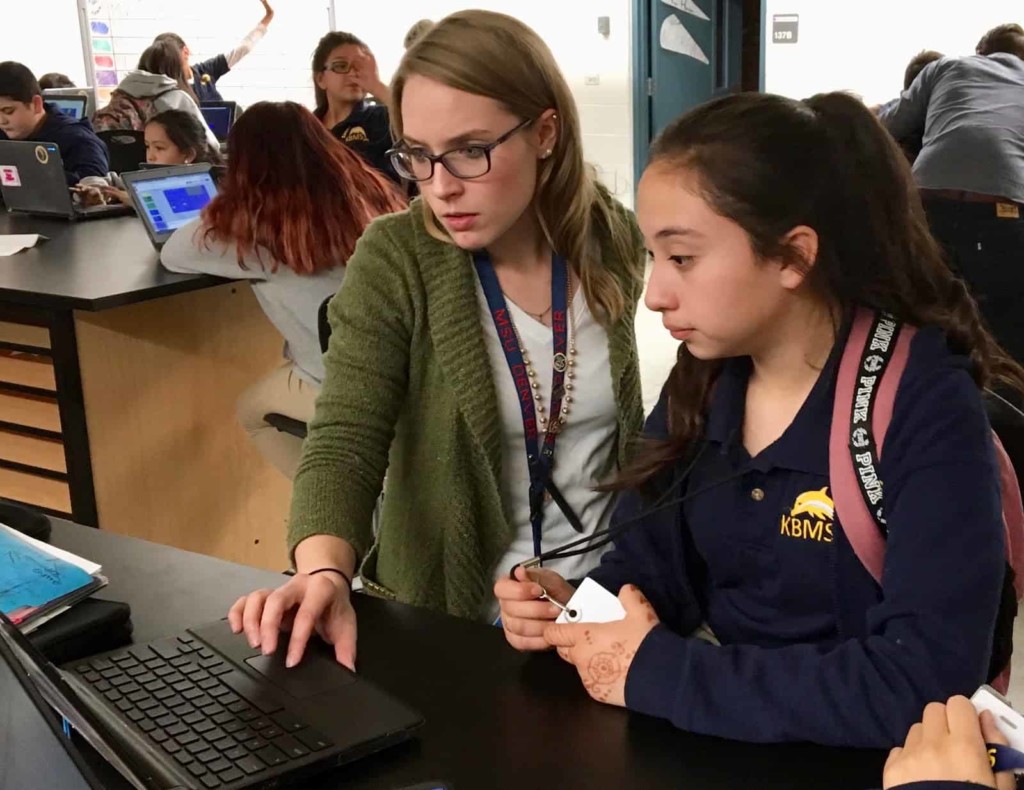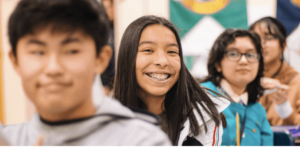A Lesson We Keep Relearning: It’s All About Relationships

Paul Wezeman was a tech-savvy teacher on a planning team for a new school in Western Washington in 1994 (the year WWW showed up on the cover of Time magazine). He made the case for an Apple computer for every two students and set out to create a new kind of fifth-grade experience, one not limited by a whole group slog through textbooks.
His student-centered, project-based classroom challenged young people to think, to create, and to collaborate.
Wezeman got to know each of his students. He helped every learner discover their superpowers and created leadership roles that leveraged their strengths. For students stifled by traditional classrooms (like my daughter), Wezeman unlocked a passion for learning and changed life trajectories.
Many of us were really optimistic 25 years ago that tech-enabled learning would be a game-changer. Yet where it has, it’s been about relationships more than the tech.
We keep rediscovering that most learners are motivated by relationships and grow in community.
Relationship First Schools
Schools in the New Tech Network prioritize team-taught, team-based integrated projects.
They promote and assess collaboration as part of every project. The small schools foster powerful sustained relationships—New Tech students build relationships with their advisory, their teachers, their peers and their community.
In the Big Picture Learning network, schools prioritize “Rigor, Relevance and Relationships.” Advisors help learners identify areas of interest to design projects and engage in internships. In an environment with no traditional classes or grades, students at Issaquah’s Gibson Ek school learn independently through self-directed projects, with certified teachers serving as guides. At New Village Academy, LA, individualized education is part of a holistic academic relationship that also recognizes and supports students’ whole selves. The school incorporates health and wellness activities into the routine of everyday.
EL Education is a network of 160 schools that emphasizes a culture of respect and belonging. Every day begins with an advisory period called Crew where they build relationships and success skills. The EL character framework encourages students to accomplish meaningful work by building strong relationships with one another and with their communities.
Energy Institute High in Houston is a STEM-focused magnet school that partners with local natural resource businesses to inform a project-based course of study that connects students to their peers and to professionals, who offer critical insights on their work.
The two middle schools in Denver’s Beacon Network “welcome all students into our culture and make sure students have a safe space to grow and learn, built on mutual respect and unity. In each class, students receive feedback on five character traits that build mental and moral development.
Valor Collegiate Academies in Nashville start the day a morning meeting of students in a circle of support. The holistic approach to human development program is based on the belief that “our humanity is found through our relationships with others.” The schools create a culture of belonging and inclusivity that helps students manage their social and emotional lives in relationship to their learning. They are also the top performing academic schools in the state.
These exemplary schools prioritize powerful sustained relationships in their:
- Structure: small schools or houses that encourage strong relationships;
- Guidance: an advisory system that connects each learner to a mentor that promotes sustained relationships and productive decision making;
- Learning model: a sequence of experiences created for and with young people that include opportunities to collaborate with peers and community members; and
- Culture: routines and rituals that value community.
Good schools build relationships into their structure, culture and practices. Strong relationships build a sense of belonging, they cultivate success skills, and they promote achievement. Strong relationships today makes possible a lifetime of success.
For more, see:
- What 100 School Visits Taught Us This Year
- Contribution: Schools Alive with Possibility
- How and Where EdTech Will Help
Header image caption: Kepner Beacon Middle School, Denver Public Schools
Stay in-the-know with innovations in learning by signing up for the weekly Smart Update.
This post includes mentions of a Getting Smart partner. For a full list of partners, affiliate organizations and all other disclosures, please see our Partner page.
This post was originally published on Forbes.








0 Comments
Leave a Comment
Your email address will not be published. All fields are required.